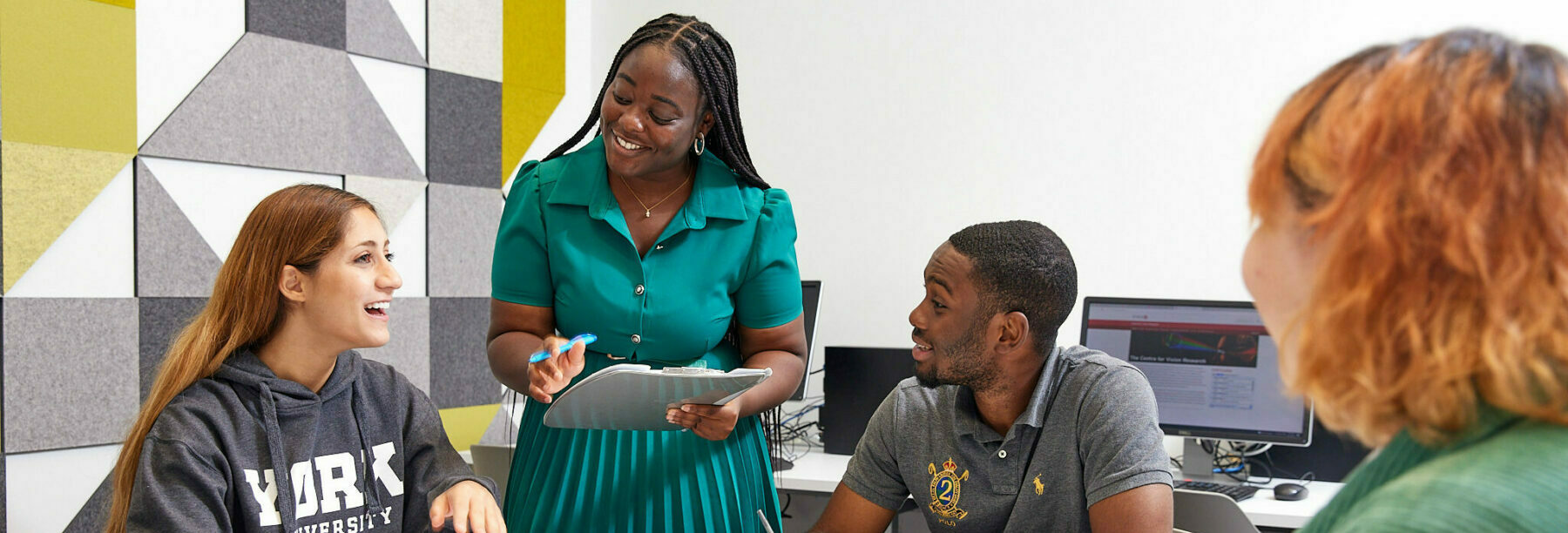By Angela Ward
Michele Johnson, associate dean, students, in the Faculty of Liberal Arts & Professional Studies (LA&PS), says that Advancing YU, a unique mentorship program, creates amazing opportunities for third- and fourth-year Black and women students in LA&PS.
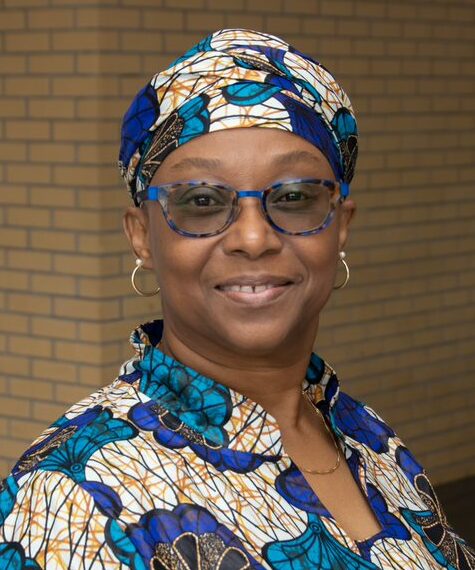
“This program gives these students the opportunity to access mentorship and support, along with connection and networking,” Johnson says. “We have two streams: one for Black students and one for women students. Given long-standing and deep-seated prejudices and barriers, many Black and women students often face great challenges beyond acquiring their degree – creating networks, getting into their preferred field of study and even obtaining relevant and helpful letters of reference. This program allows students to connect with mentors, who are also former York students and who therefore understand our University’s community.”
Like the mentees, many mentors (who are also Black and/or women) were first-generation students facing similar barriers. Matching mentors with mentees based on shared experiences and career ambitions is a key part of the pairing process, which forges meaningful connections.
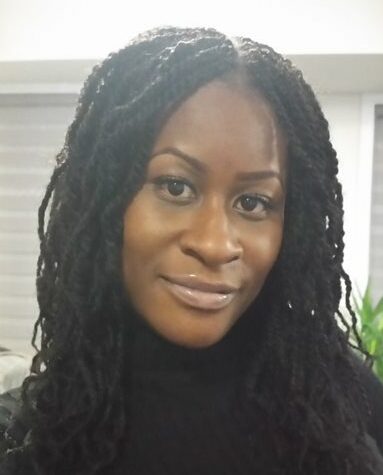
Karlene Case, manager, student engagement, LA&PS Colleges, expands on this approach. “Advancing YU takes into consideration the intersectionality of race and gender and celebrates our identities. Mentors and students are matched with people who often look like them or have shared lived experiences, providing students with access to explore educational, industry and career pathways. It is important for equity-deserving students to connect with alumni who have successfully overcome challenges and barriers, both in academia and in the working world, that they may not meet otherwise. This program also provides financial rewards that both recognize students’ accomplishments and support them.”
Students are organized into quartets of one mentor to three students, meaning that students learn from their peers as much as their mentors. Johnson explains, “We organized it this way so the students would also have the potential for a friendship cohort and not feel so isolated. This was especially relevant during the pandemic.”
This year, Advancing YU is pairing quartets together, so that “students’ networking goes one degree beyond themselves, into another quartet with another mentor,” Johnson says. “We are committed to learning from and tweaking the program each year as we respond to the experiences and feedback from the program’s participants.”
Along with mentorship, students also gain valuable experiential education. Students develop their networking, time management and communication skills, and adaptability.
“The mentors are also role models,” Johnson notes. “The program allows students to think beyond the expected. The mentors have gone through their meandering journeys and tell their mentees to be open to the many paths to success. For example, through the discussions that they have with their mentors and peers, students might consider working for a not-for-profit organization instead of a big firm, or volunteer in areas they never considered before.”
Students often have limited professional connections and experience in networking, Case explains. She says, “This program builds their confidence, especially when communicating with their mentors, many of whom are in senior management positions, providing them with an opportunity to take initiative with a curious, open mindset.”
For mentors, the program is also a very rewarding experience, says Tom McLagan, director of development, LA&PS. “Mentors enjoy contributing to the program because they can see students’ growth as they provide informed career advice. The feedback from mentors has been great and many have returned after the first year.”
Case adds, “Interactions with students encourage mentors to reflect on their journey, growth and accomplishments. There’s knowledge gained on both sides and as they share their insights, it informs the mentors’ work in their fields.”
Following this approach of continuous learning, Advancing YU has added student leaders to the program. These peer coordinators have gone through the program and now support incoming students. They provide a student-centred perspective, coordinate events and equip students with important resources.
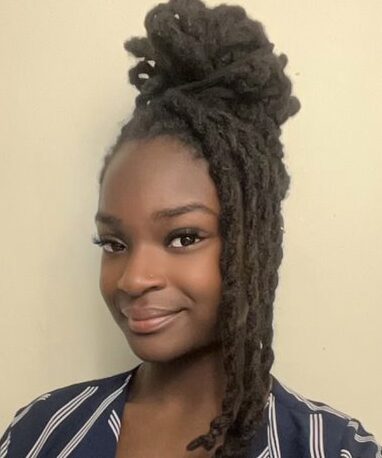
Xamida Hudson, a York University student leader in her final year of a commerce program with a specialization in management, heads the Black Students Stream in Advancing YU.
“Student leaders provide key insights to the Advancing YU team from the student perspective,” says Hudson. “This creates a more relatable and beneficial program for all students.
“I feel that I’m making a difference at York because I’m providing academic resources to students like me so they can have a better university experience. It’s an equal give and take for me and the students I’m helping. Connecting with my peers and being inspired by them is also great. I believe that besides our studies, one of the most beneficial outcomes we can get from a university experience is that connection with others.”
Hudson says that the student engagement coordinators are invested in student leaders’ experience too. “We’re given a lot of freedom to develop our personal and professional goals. For example, if I wanted to enhance my Excel or email-writing skills, I’m able to incorporate that into my job and receive honest feedback, which is beneficial to my growth as a business student.”
Advancing YU hosts key events, too. “We hold monthly workshops, each with a specific topic. The first event was about ‘imposter syndrome,’ where Black mentors spoke to Black students about their experiences with imposter syndrome and how to combat it,” explains Hudson. The students in the cohort of women students also had an opportunity to discuss concerns with and responses to “imposter syndrome” with their mentors.
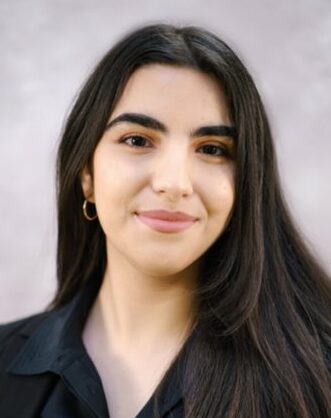
For Amelia Wassay, a student in her fourth year at York studying social work and public administration, being mentored in the program last year has given her the confidence to navigate the challenges women face in professional fields. “My mentor was phenomenal, building up my confidence and my interview skills. Now that I’m a peer coordinator for Advancing YU in the Women Students stream, I’ve learned so much more. It’s also been a time of critical self-reflection, examining the stigmas and discrimination women face.
“On top of that, this role has helped me analyze my future and think about what I want to pursue. Through it, I discovered that I want to go into the communications field. I love sharing resources and liaising with people.”
In looking towards the future of Advancing YU, Wassay says, “This is only the beginning. It has so much potential and space to grow, especially for women and people of colour. It has a bright future.”
Although this Advancing YU stream will be finished in March, students interested in applying for 2023-24 can visit Student Information, starting in September.


